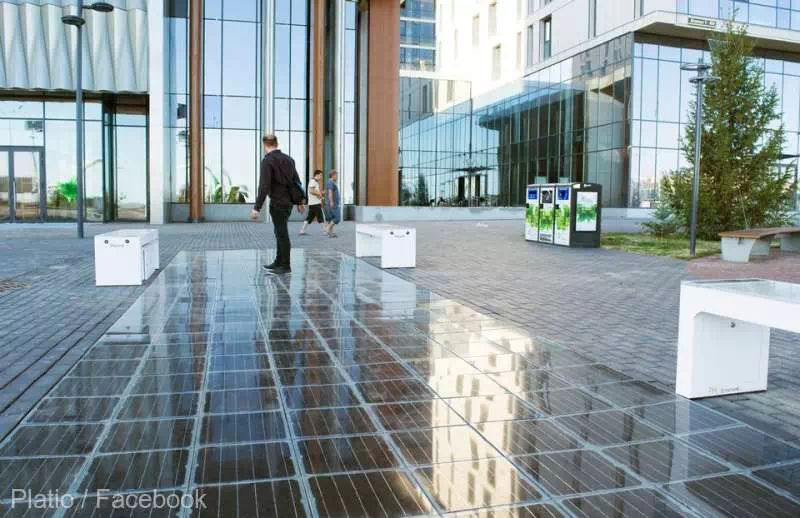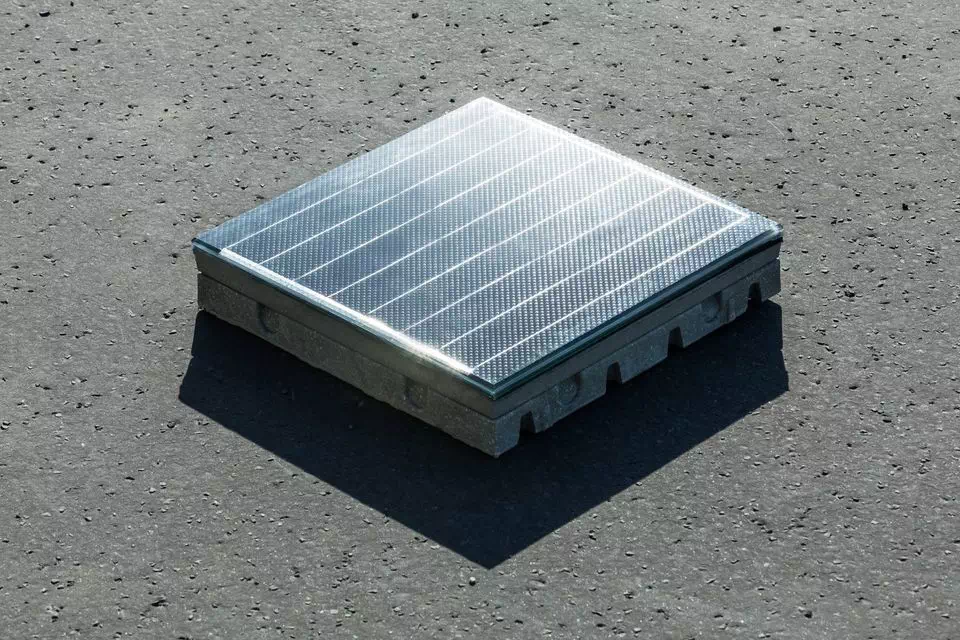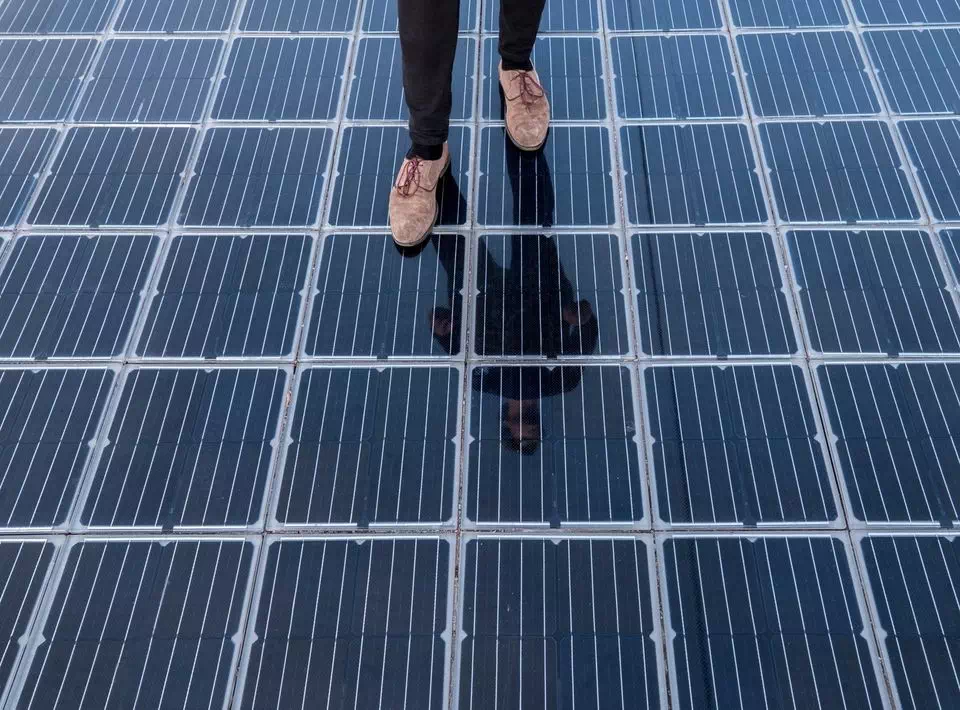


The solar cells are protected with hardened glass tiles, which allow the pavements to carry the weight of vehicles, and the secret lies in the small-scale approach, said Imre Sziszak, co-founder of Budapest-based Platio.
"There are no complicated bits in this panel. We use recycled plastic which provides a very strong and durable surface" Sziszak said while laying down a pavement at a public swimming pool in the north-west town of Komarom on the Slovak border where the solar panels will provide green energy for public lighting and a USB-charging station.
One solar panel unit provides about 20 Watts of energy and Platio says it is the only company which uses recycled plastic waste for this purpose.
For a typical family house, a 20 square-meter pavement provides sufficient green energy and Platio’s largest project was an 80 square-meter pavement in Kazakhstan to power the air conditioning of a shopping mall.
The solar cells are integrated into the pavement by using recycled plastic materials, with about two kilograms needed for each panel, and Platio pavements can be installed where using conventional solar technology is not possible.